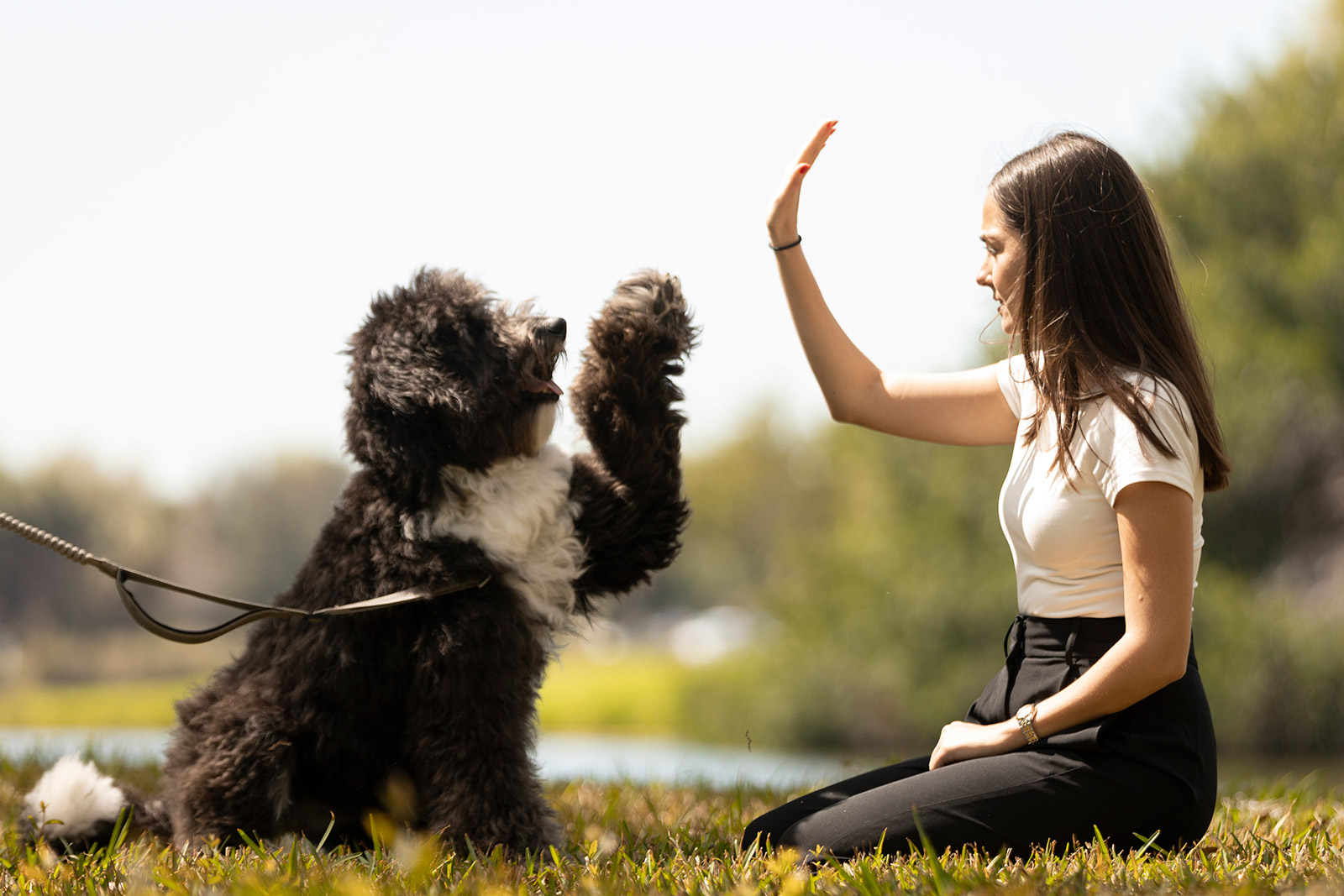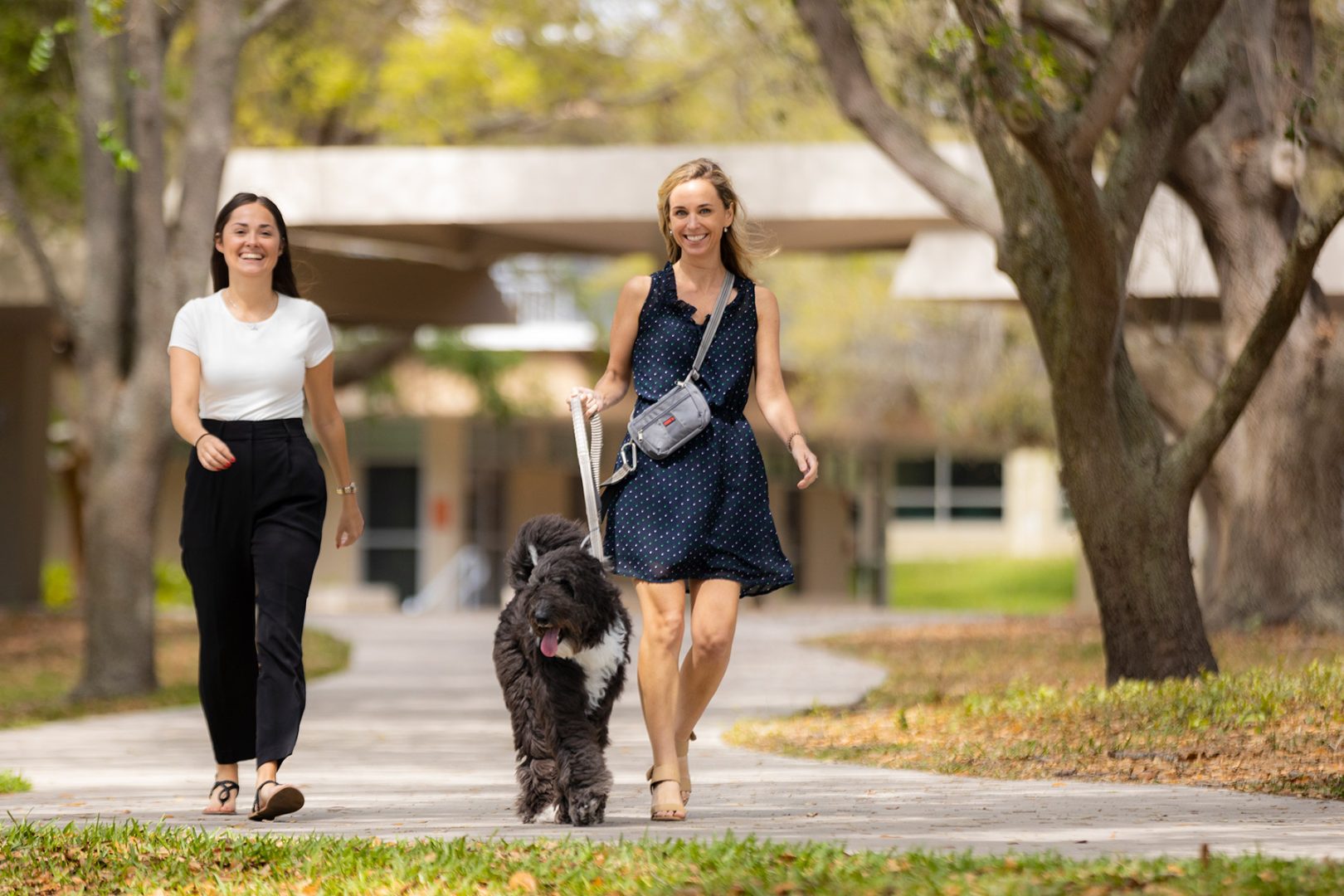With proper training, most dogs can perform myriad tasks. But can dogs create behavior? Can they be prompted to do something novel—something they haven’t done before?
According to a recent study by an Eckerd College professor, two Eckerd alumnae and a professional animal trainer, they can.
“The Creative Canine: Investigating the Concept of Creativity in Dogs Using Citizen Science” was published recently in the International Journal of Comparative Psychology, a peer-reviewed, open-access digital journal that publishes studies on the evolution and development of behavior in all animal species. The study also was featured Feb. 9 in Psychology Today, one of America’s oldest media outlets with a focus on behavioral science.
The study was authored by Lauren Highfill, Ph.D., professor of psychology and animal studies at Eckerd, along with Kaitlyn Willgohs ’21; Jenna Williams ’22; and Elaina Franklin, a professional animal trainer and the former supervisor of animal training at the Clearwater Marine Aquarium.
Researchers have known for years that marine mammals can act creatively. After seeing a “create” cue, usually a hand signal from a trainer, dolphins, for instance, receive a reward if they do something new. The challenge was to see if dogs could also exhibit that behavior.
“Elaina reached out to me that she had taught her dog, Frankie, to do that same create behavior,” Highfill explains. “She asked if that would be something we’d want to research. So we created a Facebook group and started reaching out to local dog trainers in the area and asked if they would be interested in this project.”
There was, Highfill says, “a ton of interest.”
With help from a grant from the Association of Professional Dog Trainers Foundation, Highfill and her team used citizen science to conduct their study beginning in late 2019.
They found that dogs performed similarly to bottlenose dolphins, rough-toothed dolphins and killer whales in the ability to be creative, and that there were individual differences in the fluency, flexibility and originality of the dogs’ behaviors.

Co-authoring the publication with Dr. Highfill has helped Kaitlyn stand out as a graduate school applicant.
“Practically speaking, studying canine cognition has direct implications for working dogs,” the authors wrote. “From guide dogs to detector dogs to therapy dogs, cognition is believed to be the secret to working-dog success. Therefore, it is important to learn more about a dog’s ability to successfully perform trained cognitive tasks.
“In the future, we would like to extend the use of the create behavior to complex problem-solving tasks,” their peer-reviewed article continues. “Dogs can often lose motivation when stuck on a task, so we hypothesize that dogs who have been trained on the create behavior can be prompted to ‘create’ and develop new, creative approaches to solving the task compared to dogs not trained on the create behavior.”
“This is quite an honor,” Highfill says about publishing with her team. “It’s great to see our research featured so prominently and to be available to such a wide audience. It takes a lot of people with different skills to make a project like this happen. And it’s exciting to see Kaitlyn and Jenna at the beginning of their research lives getting recognition for their work.”
Kaitlyn, who is the stewardship coordinator at Eckerd, will attend graduate school in the fall. Jenna is pursuing her master’s degree in biological sciences at the University of Manitoba. And Elaina works at Theater of the Sea, a marine mammal park in the Florida Keys.
“I think the study itself and the fact that it was published really speak to the undergraduate research opportunities available at Eckerd,” Kaitlyn says. “To have a publication—and a first-authored publication at that—going into grad school is exciting. It definitely helped me stand out as an applicant.”
Kaitlyn looks forward to presenting the team’s research at the International Conference for Comparative Cognition in Melbourne, Florida, this spring.














